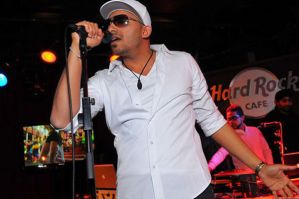Shift medium wave channels on FM and take them around the country: Jawhar Sircar

NEW DELHI: In a scenario where the receiver sets for Digital Radio Mondiale (DRM) are out of the reach of the common man owing to the cost factor, the best alternative for All India Radio is to take the national channel across the country through a network of FM stations, Prasar Bharati CEO Jawhar Sircar said today.
Addressing a meet on Radio in a Digital Age to mark 86 years of broadcasting in India, Sircar said that this could be achieved by transmitters set up at regular intervals of seventy to eighty kilometers since the FM channels being terrestrial had a limited spectrum and range. This would result in vacating the Medium Wave spectrum and thus lower the costs for - what he called - ‘FM-isation of the country’.
He said there was urgent need to take a call on this issue at a time when broadcasting was poised for a digital leap. FM, he added, was the best technology in analogue. He said twelve to fifteen frequencies would be enough for AIR to fulfil its mandate as a public service broadcaster.
He also felt that this could be done by Prasar Bharati without looking to the government for financial help.He said Doordarshan digital terrestrial transmission (DTT) and ‘FM-isation’ of AIR was the way to go forward at this juncture.
Earlier, AIR DG L D Mandloi said that AIR was already building a network of 100 watt transmitters all over the country to take Vividh Bharati and other popular channels all over the country.
Veteran agricultural scientist M S Swaminathan presided over the discussion, in which senior mediaperson B G Verghese, artiste Vidhushi Shanti Hiranand, litterateurs Prof Namvar Singh, Prof. R B Singh, and R K Singh spoke. There was a musical evening with presentations by the AIR Orchestra (on 100 Years of Indian Cinema), and a ghazal presentation by Ustad Ahmed Hussain Mohammed Hussain.
Professor Swaminathan said that the green revolution became a reality only because of All India Radio which made available transistors at low rates to the farmers so that they could learn about the latest varieties of seeds etc. He said the growth from the green revolution to the Food Security Bill were achievements of AIR.
Mr B G Verghese, who had chaired the first-ever committee set up by the Government in the late seventies to suggest an autonomous framework for AIR and Doordarshan, regretted that the role of radio had been ignored after the Supreme Court judgment of February 1995 that air waves were public property.
He said AIR had kept alive the culture of India by broadcasting in 29 languages and many dialects. He also wanted to know why AIR was still known as sarkari Radio when it was broadcasting so many other things besides news.
Referring to the Akash Bharati Trust report prepared by the committee headed by him in the last seventies at the behest of then Information and Broadcasting Minister L K Advani, he said the committee had later been told it had been asked to prepare a blueprint for autonomy, but the report advocated independence.
Refusing to mince words, Verghese wanted to know why the top posts in both AIR and Doordarshan were still occupied by government officials and why broadcast engineers were not permitted to rise to the post of Director-General.
It was unfortunate, he said, that all political parties had misused the concept of a public service broadcaster by turning it into a mouthpiece. In any case, advertisers were often deciding what should go on air.
He also regretted that no one appeared to have thoroughly read the Prasar Bharati Act 1990, which in any case was implemented only in 1997. The Act had the answers to many of the questions raised by those concerned.
Renowned vocal artiste Shanti Hiranand said that Indian classical music owed its existence to AIR, since no other channel had bothered to keep heritage alive. She said the AIR archives were a treasure trove of the country’s heritage in music and the arts. She also said that AIR had united the nation through its musical programmes.
Veteran litterateur Namvar Singh said the Archives were a repository of the languages and dialects of the nation, but were not being given the pride of place.
R K Singh who has served with Doordarshan, welcomed digitisation of AIR provided it did not affect the quality of content. He also referred to internet broadcasting which may leave behind all these technologies.
R B Singh who has been expert in agricultural broadcasts said there was need to concentrate on the rural youth of the country and in educating people in rural areas against problems like malnutrition. Community Radio Stations could play a major role in this. He said it was a paradox that malnutrition had hit the children of the people who grew food for others – the agriculturists.
The event was held on 23 July, 86 years to the day in 1927 when the private Indian Broadcasting company ltd (IBC) was authorised to operate two radio stations in Mumbai and Kolkata.














